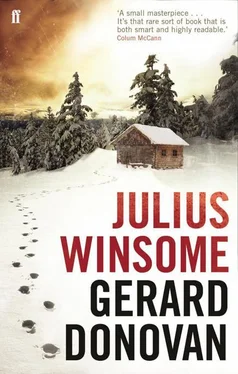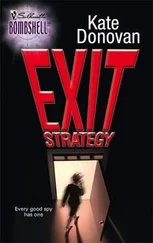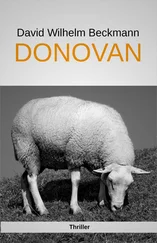You grow flowers.
I nodded. That I do. They keep me company out here.
She seemed to like that response and looked down at her hands, which she had taken from her gloves. They were white and perfumed with a cream I could smell from where I stood, a light ointment most likely. I asked her if she would like a cup of tea.
When she saw the books she opened her mouth but said nothing.
I fiddled with the kettle, letting the water run from the tap till it was good water, eyeing the chair for papers or a book I might have left on it. The fire was hot and splintering pleasantly but the woman ignored it and passed along the shelves in trails of sunlight curled by trees and the window frame. Her fine shoes clicked on the bare floorboards.
But there must be thousands, she finally said. Those words took a while coming out of her. Her accent had a trace of the local about it.
Three thousand, two hundred and eighty-two, I said.
I’ve never seen anything like this, and she smiled and clapped her hands. And you have green plants everywhere too, and those paintings. This is wonderful.
She ran her finger along the spines of the books, feeling the imprint of the title letters. She leaned close and smelled the leather, closing her eyes. I lost sight of her when she moved beyond the H books but heard her murmur as I carried the tea out of the kitchen and found her sitting on the chair, smoothing the spider plant, the only one that could go that close to the fire.
You sit well in that chair, I said.
That was the first day I met Claire. She came back the day after, and some weeks later she came again, and this time the night fell in the middle of a talk and she stayed until the morning, slept beside me in the bed, and soon enough my arm was around her and she did not move away, so we grew warm together and slept, and before we did she asked me to take off my coat, that I had company. I felt her giggle beside me.
She said I was like a straw man, a blond scarecrow with blue eyes, my feet sticking over the end of the mattress. And so tall, she said, you are seen for miles with that pale face, the whitest face and blue eyes and blond hair.
Yes, from head to toe she measured me at six foot three, which was news to me as I had never thought too much about it, and had long since bowed my head without thinking in most doorways, though I did not cross that many except for my own. She told me I was the handsomest man she ever saw, and that was a strange thing to hear from a woman who could have been with any man, but she chose me, this lady who came out of the woods in her coat. I was happy, felt an ease that had not been mine since the days of my father. I lay beside her and thought again of what lay around me in the darkness: a life simple, the mattress on boxes, the chair with a red velvet cushion that my father used to read Shakespeare from, yes, the best piece of furniture in the house, and fine Rosenthal china for the tea, two cups and two saucers. I had much to be grateful for.
She asked me if I missed my father and mother.
Dead a long time ago now, I said, and that’s the truth.
She asked me what happened, and I told her that my mother died as I passed through her body into my own breathing. She was a person I killed by being born, I said.
You didn’t kill her, Claire said. And she’s not dead, not in your mind she said, and touched my forehead. I flinched, not used to touching.
I liked her more for saying that. But the truth was that I did kill my own mother, the first person I ever killed, and no words can counter that. I missed seeing her alive by a minute. I often spoke to my mother at night and whispered to her, hoping that somewhere a trace of her could hear me, a touch she left on a candlestick, a breath stuck to the window glass she looked out of one morning.
If love leaves an echo, I said, she is with me still. If not, I have nothing of her.
* * *
The summer sun moved the days longer and longer apart, and soon the flowers filled the view in the window with yellow and deep reds and purples. Butterflies swam along the fat grass and up into the stems, drawing their own greens and browns through the mornings. Claire came and went from her home in St. Agatha, a small French town on Long Lake, almost twenty miles east of me, where she lived near her parents. I asked her why a woman like her, in her late thirties, had not married, and I added that late thirties was still very young in a woman, because I knew the delicacy of such matters from all the books. She said that she had once had a fiancé but that it had not lasted. She watched me closely as she said this. I didn’t know why I was being inspected so closely, and I nodded.
These things happen, I said. People come together, people part.
She seemed to relax then, took a deep breath and added, And I think I will have a child one day.
I saw a daughter in her eyes, I don’t know why.
She will be happy, I said.
She held my hand then and nodded. You are a gentle man, Julius Winsome. Then she laughed and said, Some weeks ago I went for a walk in the woods and I found a very gaunt giant living in a tiny cabin.
* * *
We called the dog Hobbes, from a philosopher, the first name we found when we pulled a book at random from the shelf; so the luck of a draw got Hobbes his name. It might easily have been Charles or Hugo or Stevenson or Leviathan, thankfully not the latter, with all the syllables. One Wednesday evening she brought me a dog’s nest from a shop in the town and Hobbes took to it warmly, spent many happy days curled up in it, taking more space as the weeks passed and he grew to the edges. Terriers are smart. He quickly learned the words “Walk,” “Run,” and “Ride,” the three words he knew, or at least the three he let me know he knew. The sound of the truck keys also brought him bounding from the woods or scratching to get out the door. With his head out the window and a breeze in his face as we drove along the countryside, he was a dog run through with happiness, for they lead short lives and have an extra sense for each passing moment. They eat with all their hearts, they play with all their hearts, they sleep with all their hearts.
And whenever Claire visited, he heard the sound of her truck before I did and ran between her legs and jumped up to lick her face.
That’s why he licks you, to put his scent on you, I said.
She said, And I thought he liked me.
That too, I said.
IN THE SECOND MONTH OF SUMMER CLAIRE WAS arriving twice a week, sometimes when I was working the gardens of the rich around Fort Kent or at the machine shop. I never locked the door because I had Hobbes, who had grown into a friendly but punchy little pit-bull terrier, so she let herself in and read the books or, she said, sat on the porch and watched the woods or tended to the flowers. I had no telephone or television, and I think she liked the silence that the woods sheltered, even if the guinea hens cackled, and she grew fond of the rhythm that soothed away the worry she seemed to carry with her, an anxiety that came from nowhere and had nowhere to go. In the evenings we drank some tea and wine she brought from the supermarket in paper cups and I sometimes fished out the Turkish cigarettes I kept for special occasions. What I loved was the anticipation on the drive home of being with her, seeing her in the evenings, her smell, her touch that made me shiver alive like a plant, the joy when I saw her truck parked in the clearing.
One day toward the end of summer, she didn’t come any more. I was just getting used to her and didn’t understand why she stayed away. I heard nothing for months and wondered if something had happened, so I drove to Fort Kent and looked for her. This was difficult because she never once brought me to her parents, who she said lived in St. Agatha, nor to her home or her friends. I let it go because people have their reasons and if you have to ask you already have asked one question too many. I was sure her parents were fine people who didn’t know about me or did and didn’t want anything to do with me. Anyway I finally bumped into her outside a small cafe.
Читать дальше












